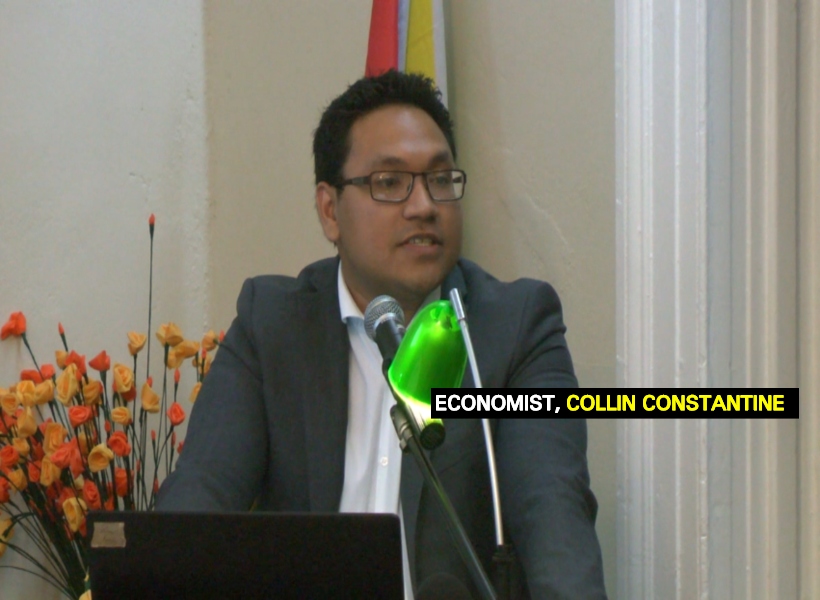It is all well and good for Guyana to pursue the establishment of a Natural Resource Fund (NRF). But it would be pointless without the strengthening of certain institutions and fiscal systems. This was recently pointed out by economist, Collin Constantine.
For the NRF to be a success, Constantine insists that the Government must get in order, sound tax and expenditure policies, including public investment management; strengthen the budgetary process; enhance human capital in key institutions; develop institutional capacity within key government ministries to improve budget execution; improve procurement rules, and increase transparency, and good governance.
In Constantine’s view, these are some of the critical areas that are essential for Guyana to be able to make the moneys to be spent upfront from the NRF, less susceptible to corruption.
The economist said, “I think it is easy for you to see that itemizing reforms to Guyana’s fiscal framework at a granular level can easily result in a long laundry list that may require several years, or perhaps another decade to achieve—time that policy makers do not have. So obviously, some prioritization of reforms is required over the next three to five years.”
Constantine added, “Since the focus of fiscal policy is more likely to complement the government’s vision for public investments, strengthening expenditure polices may be a key area that can yield more desirable benefits over the medium to long term, especially as it relates to improving the productivity of public investment, reducing wastage of public funds, and reducing the perception of corruption in the decision-making process related to public investment.”
The economist noted that it would be prudent for the government to pay attention to the case of Norway. In this regard, he stressed that the presence of strong institutions that facilitate transparency and good governance, adherence to international best practices, and a relatively conflict-free homogenous society are some of the main reasons why Norway remains one of the most successful oil-dependent economies in the world.











